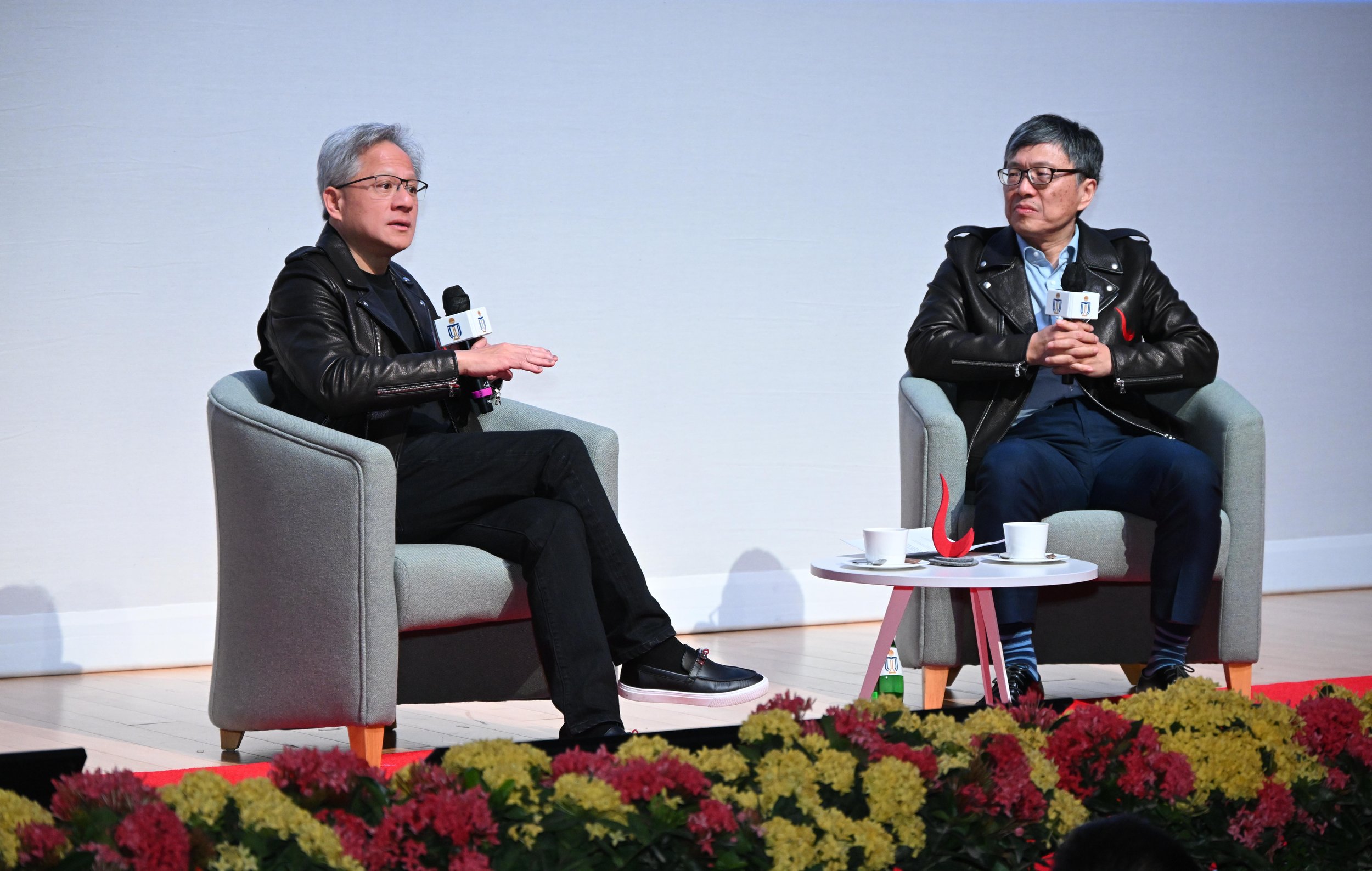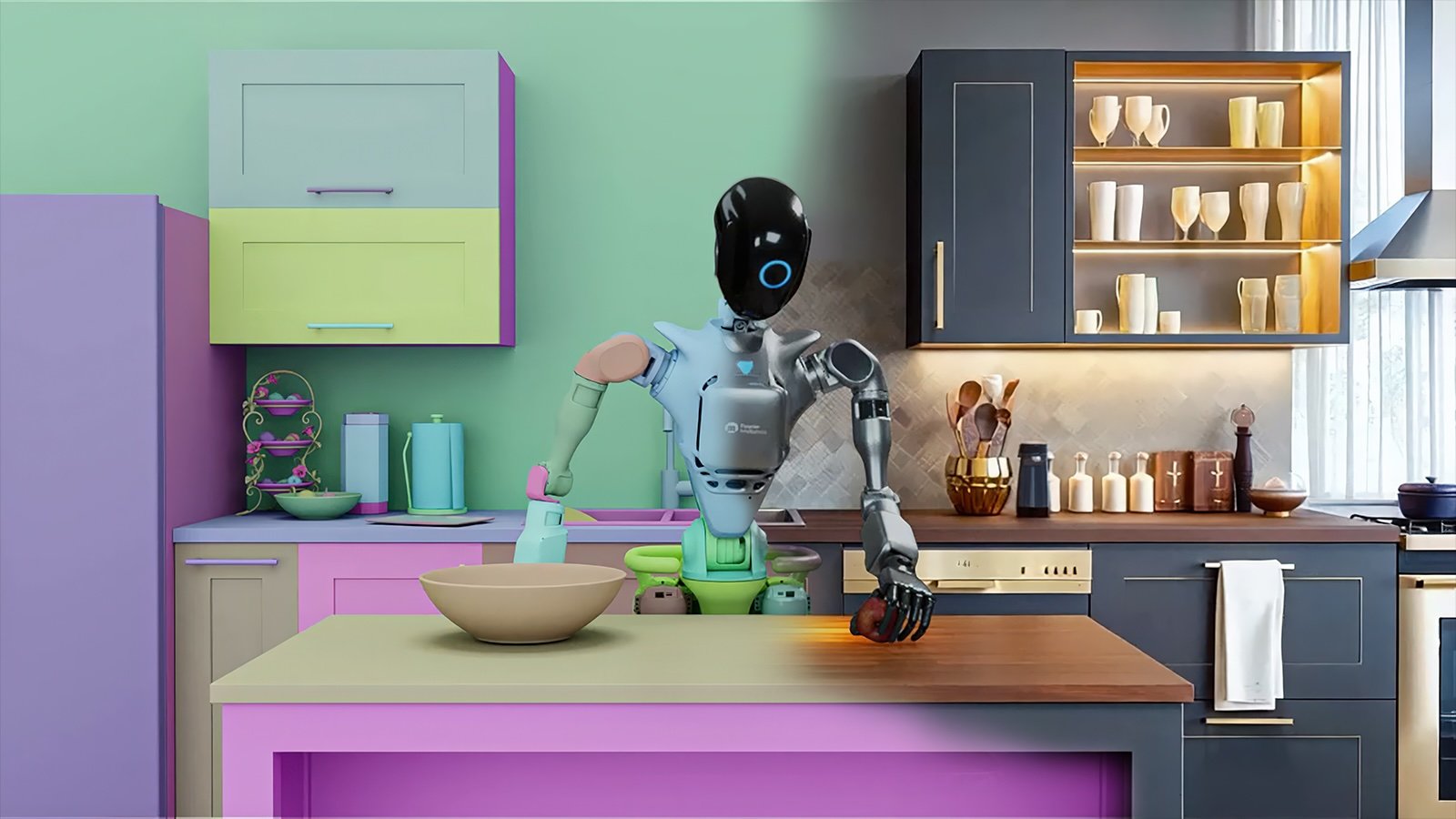Jensen Huang Receives HKUST Honour, Forecasts Future of AI and Robotics in Greater Bay Area
Image Source: HKUST
Dr. Jensen Huang, the esteemed founder and CEO of NVIDIA, was bestowed with an honorary Doctorate in Engineering during the 2024 Honorary Doctorate Conferment Ceremony at the Hong Kong University of Science and Technology (HKUST) on Saturday. Huang’s acceptance speech and subsequent discussions highlighted significant advancements and future directions in artificial intelligence and robotics, positioning the Greater Bay Area (GBA) as a pivotal hub in these transformative fields.
[Read More: Nvidia CEO Introduces "Hyper Moore’s Law" to Accelerate AI Computing]
A Prestigious Honour Recognizes Visionary Leadership
The ceremony, held on November 23, 2024, saw HKUST Pro-Chancellor Dr. John Chan Cho-Chak confer honorary doctorates to four distinguished individuals, including Dr. Jensen Huang. Alongside Huang were notable recipients such as Golden Lion-winning actor Tony Leung Chiu-Wai, Nobel Laureate Prof. Michael Levitt, and Fields Medalist Prof. David Mumford. HKUST Council Chairman Prof. Harry Shum lauded the awardees for their exceptional contributions and inspirational achievements, underscoring their roles as beacons for the global community.
Huang’s Insightful Discourse on AI Transformation
In his acceptance address, Dr. Huang delved into the transformative impact of AI, describing it as a catalyst for a new computational era that permeates every scientific discipline and industry. He expressed enthusiasm for the significant investments being funneled into AI-driven scientific advancements at HKUST and across China. Huang emphasized the imminent advent of the “robotics era”, propelled by breakthroughs in both cognitive and physical AI models, which are accelerating investments in robot technology within heavy industries and manufacturing sectors.
[Read More: Revolutionizing Elderly Care: How AI is Transforming Cognitive Training in Hong Kong]
The Greater Bay Area: A Nexus of Electromechanical and AI Innovation
During a post-ceremony dialogue with HKUST Council Chairman Prof. Harry Shum, Huang highlighted the strategic advantages of the GBA. He asserted that the GBA uniquely integrates advanced electromechanical engineering with cutting-edge AI technologies, creating an optimal environment for the robotics industry’s growth. While recognizing the strengths of Japan and Germany in electromechanical engineering, Huang pointed out their relative lag in AI capabilities. This positions the GBA as a global leader, uniquely poised to dominate the AI-driven robotics landscape.
[Read More: Tesla Unveils Cybercab & Robovan: Musk's Bold Bet on Autonomous Robotaxis by 2026]
Future of Robotics: Automobiles, Drones, and Humanoids
Huang projected that the future of large-scale robot production would concentrate on three primary types: automobiles, drones, and humanoid robots. He reasoned that the automotive sector’s established infrastructure makes cars prime candidates for mass production, while drones benefit from the vast, unrestricted skies they can navigate, offering significant production potential. Most notably, Huang forecasted that humanoid robots would achieve unparalleled production volumes, given that human-designed environments are inherently suited for their integration. This prediction aligns with his earlier statements in a June interview, where he compared the anticipated proliferation of humanoid robots to the widespread adoption of automobiles.
[Read More: Global Surge in Small Drones Empowers Militants Amid Weak Regulations]
Elon Musk Endorses Huang’s Humanoid Robot Predictions
Echoing Huang’s optimistic outlook, Tesla CEO Elon Musk publicly supported his views on humanoid robots. In a response on the social media platform X (formerly Twitter), Musk concurred with Huang’s assessment, predicting that the number of humanoid robots in the future would surpass that of automobiles by a tenfold margin. Musk further expanded on this vision in a June livestream, suggesting that the global population of humanoid robots could eventually exceed that of humans, potentially leading to scenarios where individuals might own multiple humanoid robots.
[Read More: LucidSim: The AI-Powered Breakthrough Transforming Robot Training and Generalization]
HKUST Congregation 2024: Celebrating Excellence and Innovation
The HKUST Congregation 2024 was a celebration of excellence, with HKUST President Prof. Nancy Ip emphasizing the university’s commitment to fostering innovation and preparing graduates for future challenges. Prof. Ip highlighted the establishment of the HKUST Medical School, aiming to nurture clinicians and drive biomedical advancements. The ceremony also underscored HKUST’s stellar rankings and its vibrant ecosystem, which has fostered over 1,800 active startups, including 10 unicorns, reflecting the university’s role as a powerhouse of research and entrepreneurship.
[Read More: Aussie Pioneers AI for Medical Scans]
Source: HKUST











